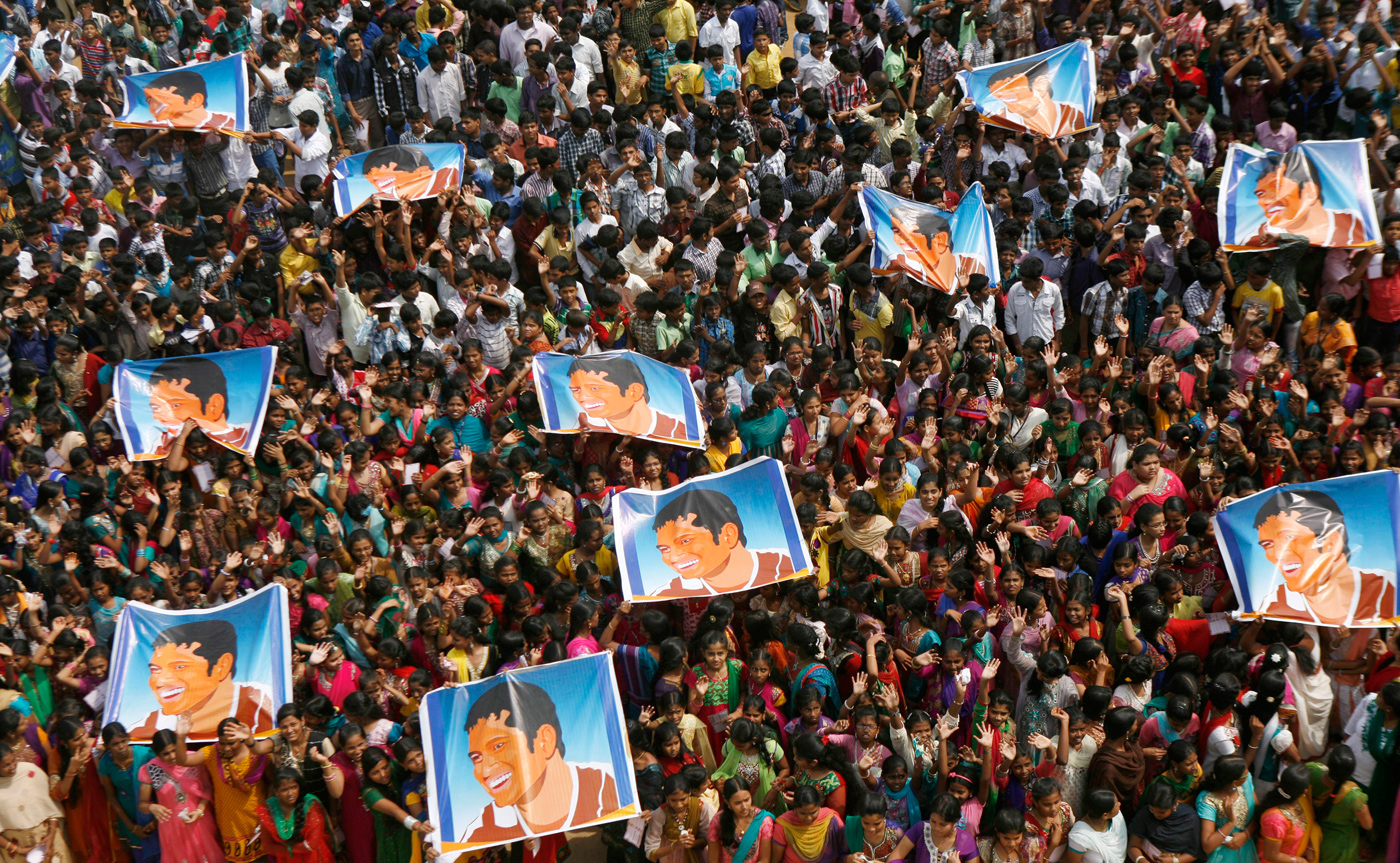'People will forgive you for being wrong, but they will never forgive you for being right - especially if events prove you right while proving them wrong.' Thomas Sowell
Search This Blog
Showing posts with label symbol. Show all posts
Showing posts with label symbol. Show all posts
Friday, 28 October 2022
Sunday, 17 November 2013
Sachin mania: it's about religion

Tendulkar: a cult figure if ever there was one © Associated Press
Enlarge
Sachin Tendulkar has finally retired. As I type this, there are a fair few letting out sighs of relief, because the sheer hype and hoopla surrounding his farewell Test series has left many feeling distinctly uncomfortable. The cynical nature of the BCCI's scheduling, the hyper-opportunism displayed by politicians and corporations, and the general hysteria of the crowds has left many decrying the spectacle as slightly unnerving.
As a Pakistani, I have been relatively immune to Sachin's appeal for most of my life. It was only in my more mature years that I came to support any Indian players at all. Even then, it was the likes of Rahul Dravid and perhaps Yuvraj Singh and MS Dhoni whom I admired, rather than Tendulkar.
Yet over the past few days, the backlash against the Sachin celebration has left me intrigued. Why were certain opinion-makers so visibly aghast at the treatment being accorded Sachin? Why were the sights of delirious crowds being countered with stats showing Sachin to be the 29th best batsman of all time?
The answer lies in an area that many people find to be naive at best and disastrous at worst. It is an area that carries significant political influence, and is always, always an incendiary topic to bring up. The answer lies in religion.
In Europe, and much of the developed world, historically, religion has been the cause of brutal and terrifying political battles over the centuries, which determined not just who ruled but also the intellectual world-view underpinning those governments. Consequently, speaking of religion in Western society can often invoke memories of violence and persecution, and can even be seen to be a resistance to progressive ideas.
In South Asia, religion has been and continues to be a major driver of violence and conflict. In a region that is one of the world's most diverse ethnically, religion often shows up as a fault line in a bewildering array of instances. Yet at the same time, religion (believe it or not) is also the reason why such distinct peoples have managed to live together for thousands of years. The idea of syncretism, which, broadly speaking, refers to the fusion of seemingly contradictory beliefs, is central to life in South Asia.
The prime example of such syncretism is found at festivals or melas held to commemorate the lives of famous saints. From Kabul to Chittagong, these are a ubiquitous feature of the subcontinent, and are attended by pilgrims from near and far. Most importantly, they witness an annihilation of conventional identities. So a saint from one religion has devotees from various faiths. You can have a Muslim saint whose shrine is visited by Hindus, Christians, Sikhs, and others.
It is impossible to distil and explain these practices in a few lines, but to put it simply, the reason such practices exist is because people believe that a truly holy person transcends conventional religious differences. Thus the revered saint becomes a pathway to a more immediate and direct bond with the divine - in a relationship that not only exists outside the regularly prescribed rituals, but is one that is only made possible due to the exalted life and efforts of the saint.
I think this is the context one needs to view Sachin's farewell in.
I am not taking the popular sentiment of calling him "god" and trying to run away with it, and I doubt many people consciously and spiritually see him as a saint on par with the rest. But the sentiment that underlines his retirement and the rapture he is generating cannot be seen as mere sycophancy, commercial exploitation, or celebrity-fuelled hysteria. Undoubtedly, all of these things play a part in this festival, but they are not what it is limited to.
When people ask why all this is being done for one person, or why Dravid, Sourav Ganguly and VVS Laxman didn't get such farewells, or why the FTP is being disrupted for one man, they are asking valid questions but ones that are irrelevant to this context. The debate about who was great and who wasn't ends here with the people. Because ultimately, this celebration is not for Sachin, it is for his devotees.
It is for the people who turned to him as a symbol of hope, as a symbol of perseverance. It is for the people who refused to give up because their Sachin hadn't. It is for the people who believed they could break barriers and limitations because Sachin had shown them it could be done. It is for the people who know that it is time to let go of someone they relied upon for their smiles and the unburdening of their sorrows.
Perhaps all this hype and obsession makes "cricket" fans feel uncomfortable. Perhaps there are fans despairing at this cult-like behaviour. Perhaps there are those who feel that all this undermines Sachin's own credibility. To all of them, I paraphrase the patron saint of cricket writers, Hazrat CLR James, when I say: "What do they know of Sachin, who only Sachin know?"
Subscribe to:
Comments (Atom)